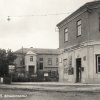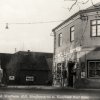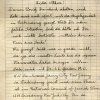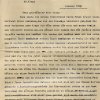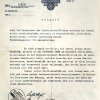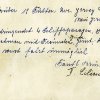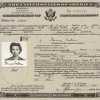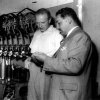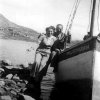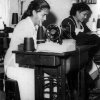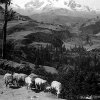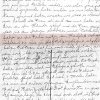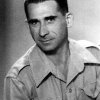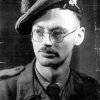Deprivation of Rights
Deprivation of Rights
"Hitler had passed our house by car, and the people stood at Riemerplatz and roared all day," A people, a realm, a leader. " We just shut the windows." (Olga Willner)
On the evening of March 11, 1938, a crowd of people gathered at the Rathausplatz. Under "Sieg Heil" calls were first hoisted at the Rathausturm a small and finally a large Hakenkreuzfahne. On 14 March, the St. Pöltner newspaper was continued as a national socialist party magazine "in the spirit of the new era". She reported scornfully of private raids on Julius and Jakob Körner and Ernst Schulhof. Members of the St. Pöltner SS invaded the apartments of Julius and Hilde Frischmann, Betty Frischmann, Hermann Schwarz as well as Ernst and Rosa Schulhof, robbing jewelery, money and valuables. The official designation of these raids of the first days was "confiscations".
Aryanization
"Aryanization"
"Some people are still not clear on the importance of the Jewish question. Many still express themselves to the Jewish merchant; Some stealthily, others openly. Note: Anyone who gets involved with Jews in the Hitler State will shortly or long have to face the sharpest measures of the NSDAP! This is popular treason, and quarreling is a pillory!" St. Pöltner Zeitung, 30, 21.7.1938
Just a few days after the "Anschluss" the official boycott of the Jewish shops began. On behalf of the NSDAP, the city set up a list of all Jewish businesses and businesses in September 1938. Already in January 1939 there were no Jewish tradesmen in St. Pölten.
Hachshara
Hachshara
Already in the decades before the Nazi dictatorship, Austrian Jews and Jewesses emigrated to Palestine due to anti-Semitism and Zionist enthusiasm. For the immigration into the country Israel (Hebr. Alija), at that time the British mandate area, mainly agricultural and handicraft skills were in demand. One of the organizations who had made the appropriate training of their members was the "Hechaluz" (the pioneer), founded in 1922.
Striving for emigration
Striving for emigration
Contrary to the popular opinion that most Jews had underestimated the seriousness of the situation, many tried to leave after the "Anschluss". Artur Fantl-Brumlik from Bischofstetten already sought in June 1938, his wife Hilde and the children Gertrude and Walter a guarantor in the USA. They demanded an affidavit, a maintenance guarantee declaration by a US citizen, and set immigration quotas for the respective country of origin. The Fantl-Brumlik family eventually got the longed-for affidavit, bureaucratic chicanery of the American Embassy delayed their departure in such a way that departure was no longer possible. Artur, Hilde and Gertrude Fantl-Brumlik moved to Auschwitz, only Walter survived the concentration camp.
Refuges
Refuges
“[…] the loss of our country in which both our ancestors and our ancestors have always lived through the centuries and which was our homeland was very difficult to bear.“ (Eva Ullmann, nee Grünwald)
St. Pöltner Jews fled to Czechoslovakia, to Belgium, France, Great Britain, Switzerland, Hungary, the Netherlands, South America and Australia, the Belgian Congo and Shanghai, and of course to Palestine and the USA.
Soldiers for freedom
Soldiers for freedom
"I wanted to face the enemy's eye"“ (Alfred Ratcliff, née Rosenstingl)
Some of St. Pölten's Jews, including Arthur Allina, Viktor Hahn and Hermann Weinstein, voluntarily volunteered for the British Army in their exile of Great Britain or Palestine and fought for liberation from Nazi rule.
